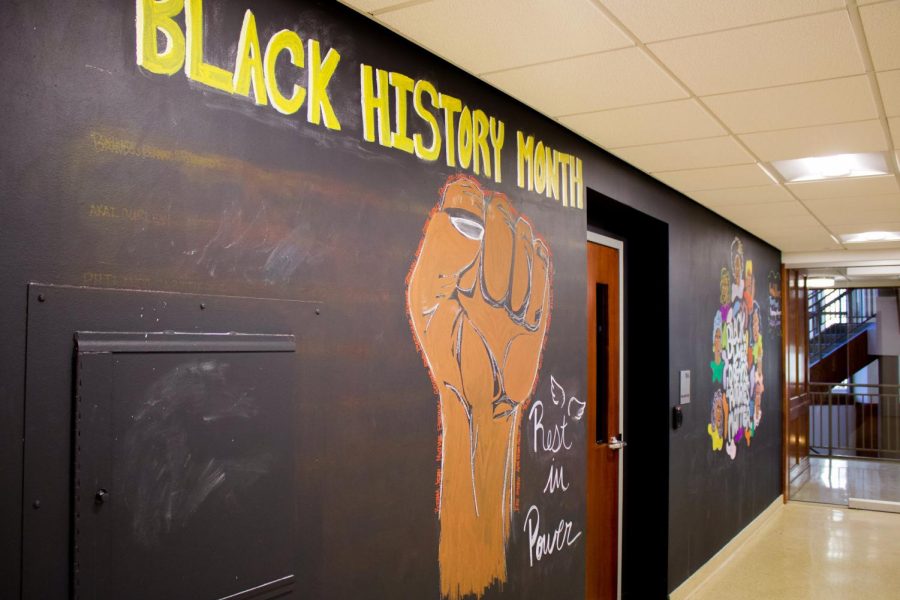Black History Month: A Black Villanovan’s Perspective
Courtesy of Meredith Green/Villanovan Photography
New Black History mural on campus demonstrates University efforts to honor the month.
February 16, 2022
During this consequential month of February, Black History Month celebrations throughout Villanova’s campus are not only necessary but also mean a lot to Black Villanovans.
“Black History Month at Villanova is important to the BSU (Black Student Union) because it offers an opportunity for all of us to celebrate, and sometimes painfully remember, our rich history which informs the issues of our current time,” said Mia Arrington, President of the Black Student Union. “It is even more important that the University demonstrates [its] commitment to transformative justice year-round.”
On Wednesday, Feb. 9, the BSU and the Black Pre-Law Student Association led a conversation together themed around “The Erasure and Effect of Black People in America.” There were many student attendees from diverse backgrounds that engaged in this respectful and informational conversation. It made space for all to learn more about Black history outside of the classroom and gain a sense of the student perspective on why Black history is often suppressed and forgotten.
Upon the recent discovery of the Moulden family’s primary role in the “acquisition” of our campus’s land, this connects to the erasure of Black history from our institution. Acknowledging the truths of our campus’s history is hopefully part of Villanova’s commitment to transformative justice, referring to Arrington’s previous statement.
“Villanova has a responsibility to continuously do the work to undo structures of racism within the institution and to uplift and support the network of Black Villanovans, as well as neighboring Black communities, which many employees of the school are residents of,” Arrington said.
“This should grow as a priority among the University administration as Villanova admits more Black students each year.”
It’s important to Black Villanovans that we are acknowledged, and our concerns are taken into consideration with each decision made in regard to Villanova’s commitment to diversity, equity and inclusion.
As a part of Villanova’s initiative to encourage racial consciousness within our campus community, all first-year students will be required to take a course on anti-racism.
I hope students and professors will understand the seriousness of this course and the value it will bring to their character and the University’s image as a whole.
I commend the University for taking steps to create a campus where students of color feel safe, recognized and supported.
As a Black woman from Brooklyn, New York, stepping away from my diverse experience in the Big Apple to Villanova was a challenging adjustment. I took this risk and could not help but notice the disconnect between students of color on campus and the White majority.
With time, I believe the University will continue to make efforts to mend this gap and improve racial relations on campus.
“Currently, a lot of the needs of Black students are being supplemented by an array of student-led affinity groups,” Arrington said when asked what one hope she has for the Black student experience at Villanova.
“Black students need more structural support from the University. One thing numerous Black student leaders have come together to advocate for in the past two years is a designated space where we can at least gather. My hope for the future is that this is implemented very soon.”
There are still improvements needed to be made for the Black student experience. It’s important that the University stays true to its Aequitas initiative and remembers to celebrate and support Black lives all year round, especially on our campus.
With under two weeks left of Black History Month, look to the Villanova School of Business, College of Engineering, College of Nursing, Villanova Athletics Department and more for events to attend.
Most of them will involve conversations of history, its relevance to the present racial landscape of Villanova and the nation at large, as well as entertainment and snacks.










